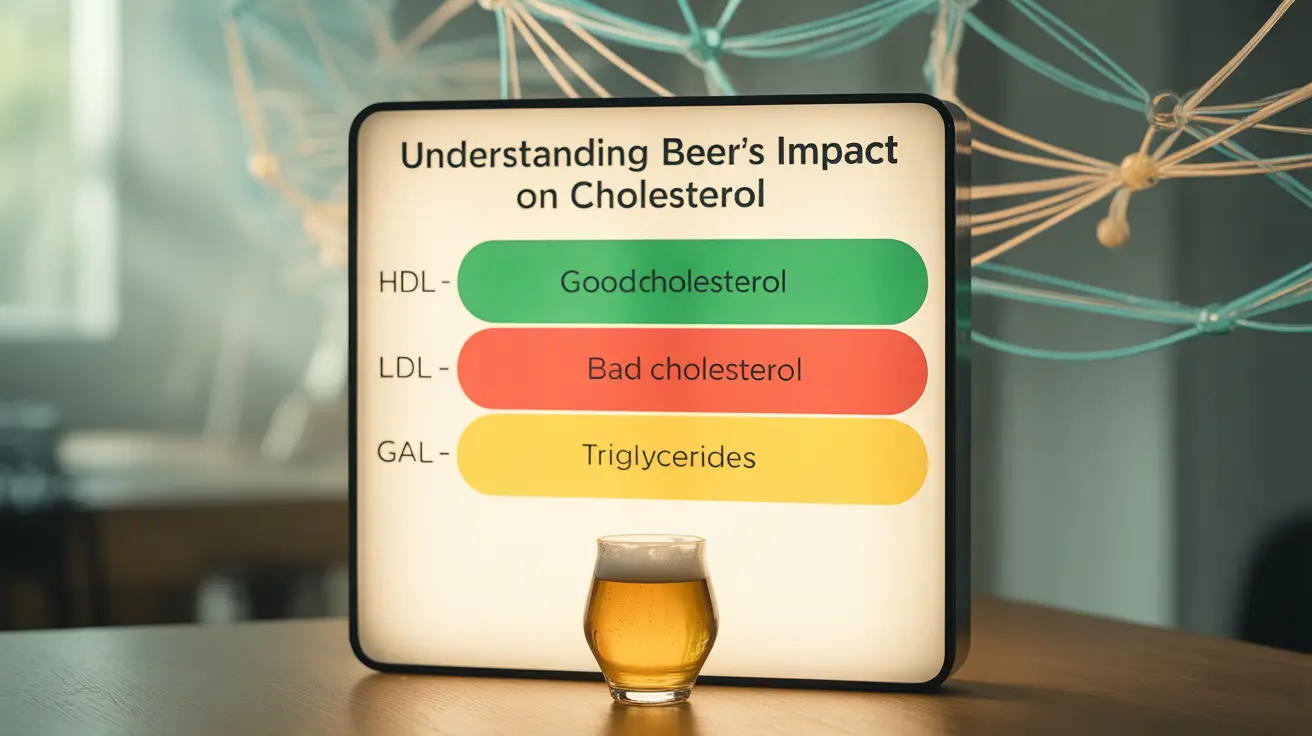Many people enjoy a cold beer after work or during social gatherings, but concerns about its impact on cholesterol levels have sparked important health discussions. Understanding the relationship between beer consumption and cholesterol is crucial for making informed decisions about your drinking habits and overall cardiovascular health.
This comprehensive guide explores the complex connection between beer and cholesterol, examining how different drinking patterns affect your lipid profile and what this means for your heart health.
How Beer Affects Your Cholesterol Levels
Beer's influence on cholesterol is multifaceted, affecting different types of cholesterol in various ways. Regular beer consumption can impact both HDL (good) and LDL (bad) cholesterol, as well as triglycerides, another important blood fat that affects heart health.
Impact on HDL (Good) Cholesterol
Moderate beer consumption may actually have some beneficial effects on HDL cholesterol levels. Research suggests that one to two drinks per day can slightly increase HDL cholesterol, which helps remove harmful cholesterol from your bloodstream and transport it to the liver for processing.
Effects on LDL (Bad) Cholesterol
While beer's impact on LDL cholesterol is less direct, excessive consumption can lead to weight gain and liver stress, which may indirectly contribute to elevated LDL levels. The calories and carbohydrates in beer can affect your body's ability to regulate cholesterol effectively.
Triglycerides and Beer Consumption
One of the most significant impacts of beer drinking is its effect on triglyceride levels. Regular beer consumption, especially in excess, can substantially raise triglycerides, potentially increasing your risk of heart disease and other cardiovascular problems.
Moderate Drinking Guidelines
To minimize negative effects on cholesterol while potentially gaining some benefits, following moderate drinking guidelines is essential:
- For men: Up to 2 drinks per day
- For women: Up to 1 drink per day
- One drink equals 12 ounces of regular beer
Comparing Beer to Other Alcoholic Beverages
Different alcoholic beverages affect cholesterol levels differently. While wine, particularly red wine, is often praised for its potential heart health benefits, beer contains unique compounds like polyphenols and B vitamins that may offer distinct health effects when consumed in moderation.
Risk Factors and Considerations
Several factors can influence how beer affects your cholesterol levels:
- Overall diet and lifestyle
- Genetic predisposition to high cholesterol
- Existing health conditions
- Age and gender
- Physical activity level
Frequently Asked Questions
- Does drinking beer cause high cholesterol or raise triglyceride levels?
Yes, excessive beer consumption can raise triglyceride levels significantly. While its direct effect on cholesterol is more complex, heavy beer drinking can indirectly contribute to elevated cholesterol levels through weight gain and metabolic changes.
- How does moderate beer consumption affect good (HDL) and bad (LDL) cholesterol?
Moderate beer consumption may slightly increase HDL (good) cholesterol levels. Its effect on LDL cholesterol is less direct but can be negative if drinking leads to weight gain or liver problems.
- Can excessive beer drinking increase my risk of heart disease due to cholesterol changes?
Yes, excessive beer consumption can increase heart disease risk by raising triglycerides, potentially contributing to weight gain, and affecting overall cholesterol metabolism. Heavy drinking can also lead to other cardiovascular problems.
- What is considered a safe amount of beer to drink without negatively impacting cholesterol?
Safe consumption limits are typically up to two drinks per day for men and one drink per day for women. However, these guidelines may vary based on individual health factors and should be discussed with your healthcare provider.
- How does the cholesterol effect of beer compare to other alcoholic drinks like wine?
While wine (especially red wine) is often considered heart-healthy due to its antioxidants, beer contains different beneficial compounds. However, any alcohol's effect on cholesterol depends largely on consumption patterns and individual health factors.




